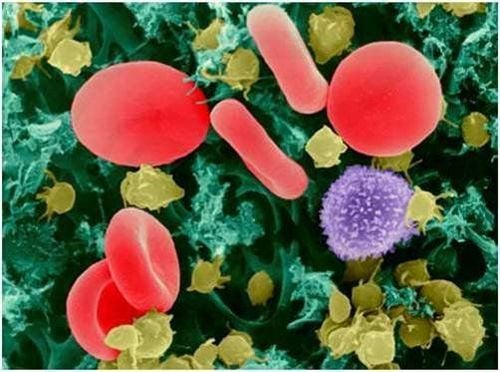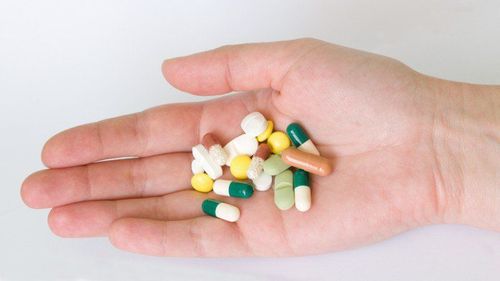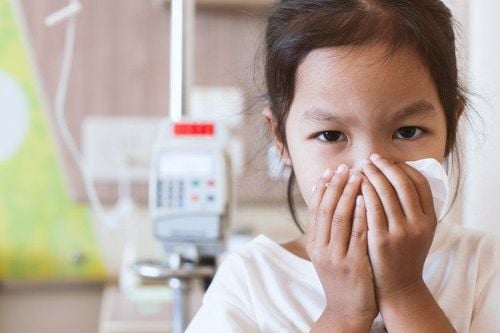Dengue fever is primarily characterized by fever and bleeding. Bleeding manifestations in dengue can include nosebleeds, bleeding gums, subcutaneous bruising, gastrointestinal bleeding, vaginal bleeding. In severe cases, it can cause red blood cell rupture, vascular leakage, blood concentration, and massive internal and external bleeding, which can be fatal.
1.When does bleeding occur in dengue fever?
Dengue fever without bleeding is called "classic dengue" and is more common in people who have never had the disease before. Bleeding manifestations are more frequently observed in individuals re-infected with the dengue virus, meaning their body has developed active immunity (due to previous exposure to the virus antigen) or passive immunity (acquired from the mother) to one type of dengue virus antigen. If infected with dengue for a second time, the patient may have been re-infected with a different virus strain, leading to dengue hemorrhagic fever.
The disease becomes more severe after the fever subsides (from the 2nd to the 5th day). Damage to blood vessels and lymphatic vessels causes bleeding, typically as nosebleeds, bleeding gums, or skin bruising. In more severe cases, patients may experience shock, low blood pressure, and plasma leakage from blood vessels, leading to severe internal and external bleeding. This form of dengue fever is more common in school-aged children. However, it is not rare for adults to experience severe cases. Although young children have relatively weak and underdeveloped immune systems, adults sometimes experience more severe symptoms than children, and the condition can even be fatal.
2. Causes of Bleeding in Dengue Fever
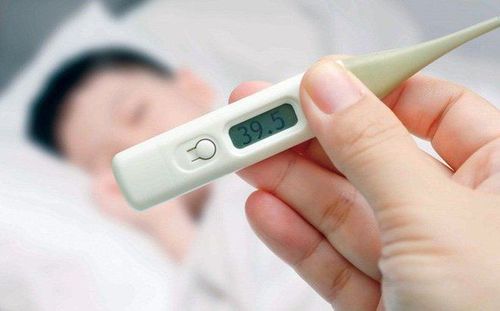
Bleeding often appears when fever improve. Mild bleeding manifestations include petechiae, purpura, subdermal hemorrhages, epistaxis, and gum bleeding. These symptoms are relatively common, even in mild and moderate dengue cases, occurring in about one-third of reported cases. The cause of mild bleeding may be due to weakened capillaries from decreased platelet count or platelet dysfunction. Platelets play a crucial role in blood clotting, helping to maintain the integrity of endothelial junctions. On the other hand, most cases of mucosal bleeding (gastrointestinal or vaginal bleeding) in dengue patients are often associated with prolonged shock and metabolic acidosis. In general, the causes of bleeding in dengue fever are related to decreased platelet count and coagulation disorders.
2.1 Decreased platelet count
The World Health Organization (WHO) defines "decreased platelet count" as when the platelet count is less than or equal to 100,000 cells/μL. Decreased platelet count occurs in most dengue patients, even in mild cases (occurring in more than two-thirds of mild and moderate cases).
The cause of decreased platelet count is believed to originate from the inhibition of bone marrow activity, caused by direct infection of progenitor cells or the activation of macrophages by T cells, leading to the release of cytokines and suppression of hematopoiesis. Additionally, decreased platelets may be due to the peripheral immune-mediated destruction of platelets due to the dengue virus and NS1 antigen. As a result, the half-life of platelets is reduced, leading to a rapid decrease in platelet count in dengue patients.
2.2 Coagulation Disorders
Coagulation disorders are common in patients with dengue fever. Some suggest that patients may experience disseminated intravascular coagulation (DIC).
Disseminated intravascular coagulation (DIC) is an acquired syndrome that activates the coagulation process, forming blood clots within blood vessels, a deficiency of platelets and clotting factors. These blood clots can lead to vessel occlusion, ischemia, and multi-organ failure.
The cause of coagulation disorders may be the body's loss of essential proteins involved in the coagulation process due to plasma leakage. The interaction between the dengue virus NS1 protein and the glycocalyx on the outer surface of cell membranes may cause plasma protein leakage and the release of heparan sulfate into the circulation. Heparan sulfate acts as an anticoagulant and is a factor that contributes to coagulation disorders.
3.Is bleeding in dengue fever patients dangerous?
Bleeding can occur in many parts of the body, such as:
- Bruising under the skin, including petechiae and purpura, or even extensive red patches resembling bruised muscles may appear.
- Gastrointestinal bleeding can lead to abdominal pain, black stools, blood in the stool, or severe, watery diarrhea.
- Mucosal bleeding can cause bleeding gums, nosebleeds, and prolonged menstrual bleeding in women with dengue.
When bleeding occurs, patients should be monitored in a healthcare facility as it often indicates shock, dehydration, and a reduction in effective circulating volume. Unlike bacterial infections, viral infections are often more complex and difficult to treat, and antibiotics are generally ineffective.
In viral infections, the body's responses, such as fever, muscle aches, headache, and dizziness, are signs that antibodies are fighting the harmful viral antigens. Therefore, dengue fever can resolve spontaneously. Treatment primarily focuses on managing symptoms, reducing pain and fever, and preventing severe complications. Death from dengue fever is related to several factors: severe bleeding, myocarditis, hemolysis, vascular leakage, hemoconcentration, and disseminated intravascular coagulation. Inadequate circulating blood volume can lead to prolonged hypotension, coma, and poor recovery.
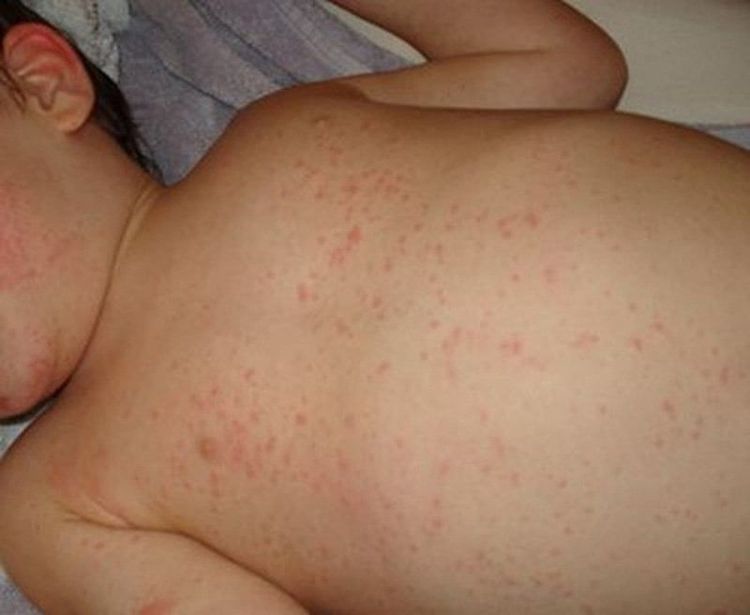
4.Treatment of severe bleeding in dengue fever
To manage severe bleeding in dengue fever patients, doctors may administer intravenous fluids, fresh blood transfusions, and platelet transfusions. Additionally, corticosteroids may be used to reduce inflammation, along with cardiac medications, sedatives, and close monitoring to prevent the development of severe shock, which carries a high risk of mortality.
When treating dengue fever at home, using steam baths or herbal steams is strictly prohibited. Patients with anemia and myocarditis are already experiencing fluid loss, and steam baths can exacerbate this condition by causing further dehydration.
Additionally, medications such as aspirin, ibuprofen, and naproxen sodium (NSAIDs) should be avoided as they inhibit platelet aggregation, impairing blood clotting and potentially worsening bleeding complications.
In cases where dengue fever patients develop severe complications such as shock or severe bleeding, immediate hospitalization is essential.
To arrange an appointment, please call … or make your reservation directly HERE. You may also download the MyVinmec app to schedule appointments faster and manage your reservations more conveniently.
Reference source: Cdc.gov




